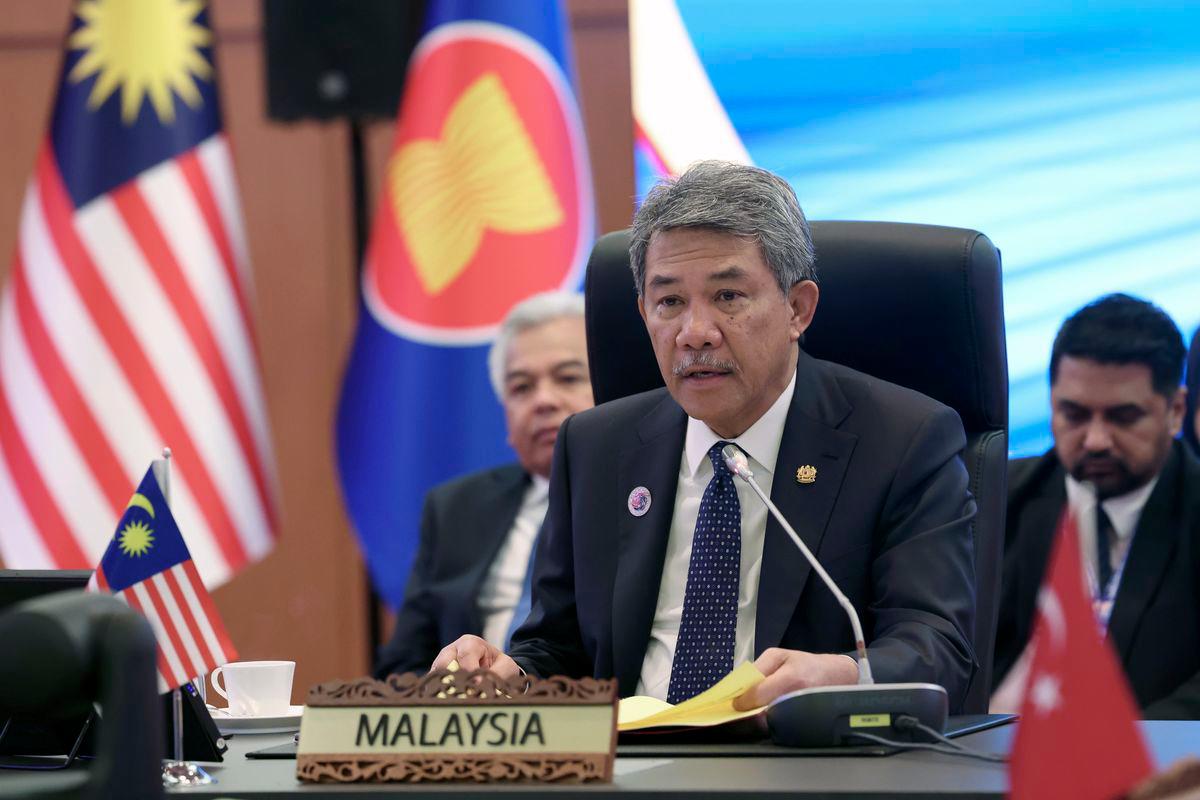KUALA LUMPUR: Malaysia, which assumed the ASEAN Chairmanship for 2025, has cautioned that the ASEAN Regional Forum (ARF) is at risk of becoming irrelevant if it fails to evolve and respond effectively to the region’s growing security challenges including maritime tensions, cyber threats and climate change.
Malaysia’s Foreign Minister Datuk Seri Mohamad Hasan said that while the ARF has long served as an indispensable platform for dialogue and consultation, it should not be complacent about its achievements.
“If we fail to respond, the ARF may risk losing its relevance, precisely when effective and reliable multilateral frameworks and leadership are most needed,” he said in his remarks at the 32nd ARF held in conjunction with the 58th ASEAN Foreign Ministers’ Meeting (AMM) and related meetings, here on Friday.
To remain relevant and effective, Mohamad said the ARF must continue to evolve and demonstrate greater agility and responsiveness to new and emerging realities.
“Prioritising these objectives should be key to ensuring that the ARF remains an inclusive and credible regional security architecture,” he said, adding that Malaysia, as Chair, remains committed to revitalising the ARF.
In addressing an increasingly wide spectrum of regional security challenges, Mohamad said it is imperative that the ARF maintains the resilience of its institution and the breadth of its cooperation.
“We must also continue to reaffirm our commitment to upholding international law and maintaining a stable, rules-based international order,” he said.
Mohamad outlined several priority measures that should be at the heart of the ARF’s agenda, including the need for the ARF to remain responsive to the region’s most pressing challenges such as maritime tensions in key waterways that risk miscalculation and conflict.
“Cyber threats are escalating, undermining infrastructure, spreading disinformation and eroding public trust. Climate change, once a distant risk, now presents multiple threats that worsen insecurity and displace communities,” he said.
Besides that, Mohamad said the ARF must be better equipped to respond swiftly and effectively, and play a stronger role in early warning and response, especially in humanitarian crises, health emergencies and conflict prevention.
He said the ARF must also move from dialogue to action.
“The gap between ambition and implementation must be closed,” he said, adding that Malaysia calls for stronger cooperation through joint projects in key areas such as maritime security, counter-terrorism and disaster preparedness, as well as better coordination with other ASEAN-led platforms.
Mohamad also noted that the strength of the ARF lies in its inclusivity - uniting 27 participants with diverse perspectives.
“Together, we must strengthen the ARF as a stabilising force - a forum where trust is nurtured, differences are managed, and partnerships are strengthened,” he said.
The ARF comprises ASEAN member states and dialogue partners including Australia, Canada, China, the European Union (EU), India, Japan, New Zealand, South Korea, Russia, the United States and the United Kingdom.
Other participating countries include Bangladesh, North Korea, Mongolia, Pakistan, Sri Lanka, Papua New Guinea and Timor-Leste.
Today’s meeting, among others, gathered US Secretary of State Marco Rubio, Chinese Foreign Minister Wang Yi, Russian Foreign Minister Sergey Lavrov and EU High Representative for Foreign Affairs and Security Policy Kaja Kallas. - Bernama









